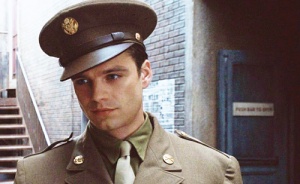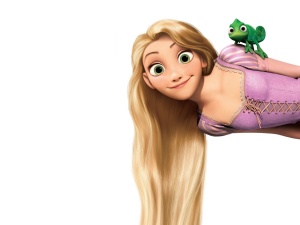Welcome back to this Brooklyn Project special on Writing Anger!
In the previous post, I explained why anger (and other emotions) is important to your novel and the different tendencies of character types in anger. In this post, I will give specific examples, explain how backstory can influence a character’s emotions, and give some advice and handy tools for writing it into your novels.
Anger tends to vary drastically within types as well as within genders. Take Obi-Wan Kenobi and the Doctor, for example. I have them both classed as Type Fives because they’re both extremely complex characters who use a lot of misdirection and subtlety (as a side note, I watched part of David Tennant playing Hamlet and I’d have to say, Hamlet is Type Five as well.) Obi-Wan and the Doctor are both a bit more emotional than the stereotypical Type Five (Sherlock Holmes, for instance), but they have tendencies towards different emotions. Obi-Wan, while he’s a generally optimistic person with a mostly-happy childhood, is also a realist (see? really complex!) and slides toward sadness as an adult (as a child, he had a very quick temper), and I’d imagine that of all the Star Wars characters he’s probably the one hiding the fact that he has to take antidepressants. Obi-Wan has a tendency to switch topics without warning (non sequitur to the Rest Of The World), but has come to manage that in his adult life so he acts more like an INFJ than an INTJ (which I’m pretty sure he is.) The Doctor is much more bipolar. He sometimes has dramatic mood swings, jumps from idea to idea without consistency and gets depressed when he loses Rose in his tenth incarnation. (The Ninth and Twelfth Doctors were both much more focused, while Eleven just seems a bit aimless and underdeveloped to me.)
As a child, Obi-Wan was under a lot of stress much of the time–his teachers had high expectations, he routinely exceeded them, which in turn made his teachers set their standards for him even higher. No one ever particularly told him that he was clever, which certainly helped him to become the humble character we all love, but it didn’t do much to help him cope with his workload–being observant, he knew that most of his age-mates weren’t working this hard. Either he didn’t know the reason, or he simply rationalized it that he was stupid, because he was working so much harder than everyone else. Because he was stressed, he tended to flare up in anger when bullied, which made people perceive him as an angry person when he really was a compassionate and thoughtful one under a lot of stress. (He was probably also dealing with depression, but it went unnoticed because he didn’t fit the stereotype.) This was dramatically exacerbated when he came closer to the cut-off date for apprenticeship. It was a self-fueling cycle that pushed him down, but fortunately Yoda observed what was going on, realized that he was caught in a cycle and they weren’t seeing his true self, and used the fact that he’d recently gotten into a fight with another Jedi hopeful to get him out of the Temple and away from the cycle. (“The Rising Force” by Dave Wolverton. What makes me think he was dealing with depression? The hopeless way he responded to being taken away from the Temple and his difficulty in finding the will to fight back when attacked on the transport. I may be wrong about depression, but that seems to fit the facts.)
As an adult, Obi-Wan was not as likely to flare up, even when provoked. It took a major provocation (oftentimes aimed at his loved ones rather than himself) to get him angry. While he was outwardly a model of serenity, he was really a visionary, passionate and idealistic, and had an innate ability to read other people and respond to them in a disarming way. (Oh, sorry, did I say Obi-Wan was INTJ? It’s really hard to tell if that big letter is a T or an F, especially with him.) Obi-Wan was both a traditionalist and a reformer, and given enough time he might have been able to get the entire Jedi Order back on track. Obi-Wan always had a sarcastic and often dark sense of humor with a love of wordplay and a cutting wit that he used as a smokescreen to hide any internal trepidation. However, his sarcasm was more often a part of his humor than of his anger.
As an adult, Obi-Wan responded to anger in one of two ways. One was a sudden burst of anger (in response to sudden provocation), followed quickly by calm, rational thought, and the other was a cold, distant, controlled and calculated wrath that was completely terrifying, even if you were not the target of it at the time. Obi-Wan was not an angry person, however. His anger was aroused and then when it was over, it was completely gone.
The Doctor, while he had a similar upbringing (taught at an academy with little to no familial contact after his induction), was always more of a rebel. While Obi-Wan had an intuitive understanding of the world and the people around him, the Doctor, while brilliant, would often find himself confronted by situations and things he didn’t understand. The Doctor never particularly cared about other people’s opinions and was often more sassy than sarcastic. Sarcasm was not often a part of his anger, either. The Doctor didn’t often have those rapid flare-ups of temper as an adult–his anger was a constant, a perpetual and constantly controlled presence and as such it was always tightly controlled. When openly angry, the Doctor’s anger was similar to Obi-Wan’s calculated cold fury. He would often be verbally cutting (though not sarcastic,) whittling people down (often to tears) with words. His word choice, posture, and expression would all become menacing. For me, the most effective thing about David Tennant’s performance as the Doctor was the way he could play a character who is sweet, charming, frankly adorable and a little bit ditzy but who is at the same time an intensely driven individual, with an ever-present and deep-rooted anger–especially the way Tennant is able to jump so quickly between the two.


There was another image I was going to use, but it’s the most terrifying expression you are ever likely to see, so I’m going to refrain. This blog is mostly G-rated, after all.
Their angry expressions vary, too: Obi-Wan presses his lips together tightly, the Doctor tends to display his teeth (which is slightly unnerving in its own right–Ten’s teeth are sort of angled-in, which prompted him to comment “That’s weird” immediately after his regeneration.) Obi-Wan’s anger is all in the way he looks calculatedly at people, while the Doctor’s anger is all in the eyes and mouth–eyebrows draw together, lips curl back, and his nose wrinkles a little. The Doctor looms over people, while Obi-Wan tenses up in his core and has to remind himself to breathe. That last one could be more because Obi-Wan’s training was a little more martial in style, so he’s preparing to leap into action at any second. The Doctor’s anger intimidates, while Obi-Wan prepares to fight.
(Bottom line, fangirls: The Doctor is scary. He does have a fluffy side but he also has quite the dark side. Do not occasion David Tennant giving you The Eyebrow… if he did it to me I’d probably burst into tears.)
Let’s talk about Steve Rogers, a typical Type One. Steve doesn’t get angry often, but when he does, you do not want to get on his bad side. Captain America: The Winter Soldier has several prime examples. In the first fifteen or so minutes of the movie, he tells Fury off for not giving him the whole story about the opening mission. Rather than verbally attacking Fury or using sarcasm, though, he lets Fury know he’s angry and then tells him why in plain language that’s not calculated to make Fury angry in turn. As a result, we find out how much Fury really respects Steve–in response to Steve’s accusation, he shows us that he values Steve’s respect by showing Steve SHIELD’s latest top-secret project: Project Insight. You wouldn’t think that Fury would let something like Steve’s respect be that important to him, but it is.
The other notable anger we see Steve display in The Winter Soldier is his anger following the shock of discovering that his best friend is still alive and has been brainwashed into a Soviet superweapon. “Would you have compartmentalized that too?” he asks Fury, the most biting his language to Fury has gotten thus far. He’s being a little bit irrational, which is not really typical for Steve at all. I think that in the scene on the bridge when Sam Wilson says “He’s the kind you stop,” Steve is still angry about it but keeps himself from lashing out viciously at Sam because it is not Sam’s fault.
You can’t really see it on his face when Steve is angry because his angry look is more “calculating” than “angry.” You have to listen to him to know he’s angry. Also, Steve’s sarcasm is rarely connected with his anger–it’s more self-deprecating. We generally only see him use sarcasm when he’s angry with himself or trying to work with people, and then he uses his sarcasm the same way–to defuse the situation through self-deprecating humor. It’s very rare for us to see Steve use anything but plain language–which would seem to be a fairly common trait for Type Ones. They can get technical, but most of the time they whittle things down to the barest meaning they can.
Bucky Barnes is different from most Type Twos. He’s brave, funny, active, adventurous, and a people person. Cool factor was harder to figure out, but he’s the Winter Soldier. However, he isn’t as much of a planner as Steve is and as a result we never see him planning anything in particular. Rather than acting or taking the initiative, we see him reacting (which is probably because his supposed death is the “Mirror Moment” of The First Avenger–the moment the main character goes from reacting to initiating the action.) Bucky is more of what I’d call a mature Type Two–a Type Two who is aware of their own character flaws and dark side, making it more of a character strength for him than a weakness. He’s less existential than Type Ones or Fives though, so he doesn’t deal with such deep self-hate as, for instance, the Doctor, Obi-Wan, or Steve.
When Bucky gets angry, it’s normally because someone has attacked Steve (verbally or physically.) I’d imagine that when someone badmouths Steve, Bucky attacks them personally with his words and tears them down completely. He is quietly angry about the injustice of people constantly taking it out on Steve, but doesn’t quite know what to do about it (because he’s more based in social norms than a Type Five like Sherlock, who would not be held back in going after the wrongdoers simply because it wasn’t “okay.”)
Wow. This post turned out long. I’ll have to split it into three, rather than two as I had planned… Stay tuned for the final installment of this series!
Thanks for reading, and God Bless!








